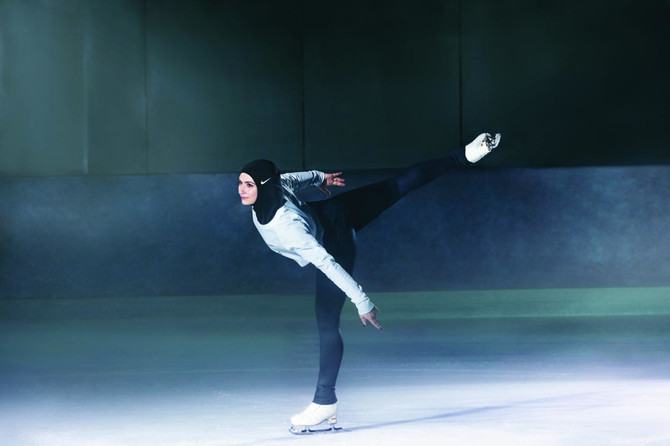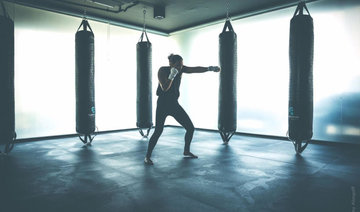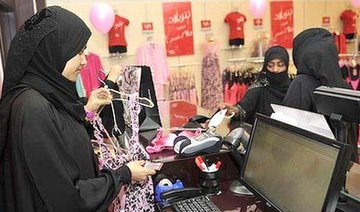JEDDAH: The Nike Pro Hijab may have been more than a year in the making, but its impetus can be traced much further back to an ongoing cultural shift that has seen more Muslim women than ever embracing sport.
The movement first raised the international consciousness when a hijabi runner took the field at the 2012 London Olympics.
Nike on Tuesday launched their new Pro Hijab women-empowering initiative to further support Muslim women.
“Nike’s mission is to bring inspiration and innovation to all athletes,” said Megan Saalfeld, Global Nike spokeswoman. “And we’re thrilled that Nike can deliver a product innovation that female athletes in the region told us they wanted and needed.”
There is a growing demand for modest wear in the global market. Recently, Debenhams partnered with the world’s leading modest-wear clothing brand Aab for a new fashion range.
The New York fashion week 2017 witnessed a strong presence of modest wear as well. In just two seasons, Indonesian Muslim designer Anniesa Hasibuan has made the hijab her trademark — and dazzled New York fashion week’s catwalk by styling it with flowing, iridescent gowns fit.
Saalfeld, a 13-year Nike employee, told Arab News that Nike is inspired by the unique beauty and culture of the region, and have hosted several of their design team members in Dubai over the past year to learn more about the Middle East.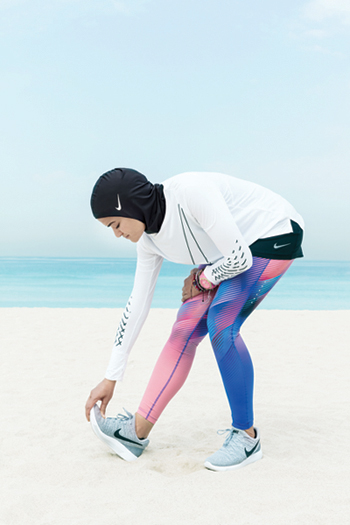
“Our designers met with people from all areas of the Dubai and GCC community,” Saalfeld said. “From athletes to local historians, writers to artists these sessions allow our teams to learn more about the region, what athletes here want and need to perform better, and allow them to take this inspiration back to Oregon,” she added.
Muslim consumer spending on clothing is estimated at $243 billion in 2015, according to the State of Global Islamic Economy’s report. The revenues from modest fashion clothing purchased by Muslim women have been estimated at $44 billion in 2015. Muslim spending on clothing is expected to reach $368 billion by 2021.
However, these figures were not the reason that prompted Nike’s initiative. “This wasn’t part of the design process,” Saalfeld said.
According to Saalfeld, Amna Al-Haddad, a weightlifter from the United Arab Emirates, visited the Nike World Headquarters in Oregon in January 2016. She met with designers and the team in Nike Sport Research Lab. When she told the team that she only had one hijab for competition and would like something that was more specific for sport, the team responded.
“We’re in a place where we can bring Nike’s first performance hijab to select athletes in this region, with plans to have it commercially available in early 2018 to athletes around the world,” Saalfeld added.
Princess Reema bint Bandar bin Sultan Al-Saud, vice president of Women’s Affairs of the General Authority of Sports, told Arab News that she is pleased to see that a global company like Nike sees the value in supporting the women of the Muslim community as this shows that sports truly can be inclusive.
“This is a game changer that opens up so many doors for girls in the region and around the world,” Al-Saud said.
Manal Rostom, Nike Run Club Coach, told Arab News the Nike Pro Hijab empowers her.
“As an athlete, you look up to role models who are endorsed by Nike and other big sports brands, and to have one of those brands support me as an Arab hijabi athlete, it empowers me to reach even greater heights, to run longer distances, because I have that support on me and behind me,” Rostom said.
Rostom said the sports hijab is a gift for women struggling whether to embrace hijab or not.
“This is the perfect gift and it goes beyond being a new product that Nike is selling – it’s going to empower all women to embrace hijab and embrace who they are,” she said.
Zahra Lari, an Emirati ice-skater, told Arab News that people might think or tell hijabi athletes that they cannot do certain things, “but I’m going to show them you (athletes) absolutely can,” she said. “I am covered, I am Muslim, I am from a desert country and I’m doing a winter sport. It’s fine to do what you love. My family is behind me, my country is behind me — and there’s no reason why I can’t achieve what I want to achieve.”
Just do it, hijabi style: Nike unveils modest sportswear range
Just do it, hijabi style: Nike unveils modest sportswear range
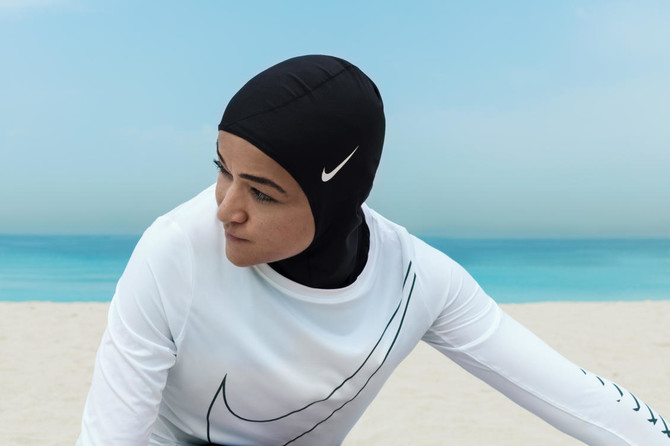
Saudi Arabia and France strengthen strategic health care partnership during minister’s visit

- Fahd bin Abdulrahman Al-Jalajel on visit to France
PARIS: Saudi Arabia’s Minister of Health Fahd bin Abdulrahman Al-Jalajel met French health officials in Paris on Friday to reaffirm and deepen healthcare cooperation between the two countries, the Saudi Press Agency reported.
The talks between Al-Jalajel and Catherine Vautrin and Yannick Nodder focused on building a strategic partnership with an emphasis on public health policy, healthcare system development, disease prevention and emergency response, SPA added.
Both sides praised Saudi Arabia’s ambitious health-sector reforms under Vision 2030, notably in digital health, biotechnology and innovation.
The ministers welcomed the near-finalization of a major agreement to formalize healthcare collaboration and witnessed the signing of several memoranda of understanding between Paris’s Assistance Publique–Hopitaux de Paris and the Saudi Red Crescent Authority.
These agreements aim to boost scientific research, innovation and pre-hospital emergency services.
They also committed to strengthening cooperation on global health issues, including antimicrobial resistance, and highlighted the importance of engaging with international institutions such as the World Health Organization Academy and the International Agency for Research on Cancer.
During his visit, Al-Jalajel also met senior French officials, including Clara Chappaz, minister for artificial and digital intelligence, and Laurent Saint-Martin, minister for foreign trade and French diaspora.
He also attended the Saudi-French Business Council Forum, where strategic agreements were signed in digital health, oncology, emergency medicine and biotechnology, supporting Vision 2030 goals.
Both countries pledged to maintain regular dialogue and activate joint action channels to ensure the effective implementation of their health partnership.
Who’s Who: Shahid Khan, Global Head of Media, Entertainment, Sports, and Culture sector at Arthur D. Little (ADL)

Shahid Khan is the global head of media, entertainment, sports and culture at Arthur D. Little (ADL), the world’s oldest management consulting firm.
Born and raised in Kuwait and fluent in Arabic, Khan brings a globally informed yet locally grounded perspective shaped by a 25-year professional career across the US, Europe and the GCC.
In recent years, he has centered his efforts on Saudi Arabia’s transformation under Vision 2030.
As part of this commitment, he relocated to the region and moved ADL’s global headquarters for the MESC practice to Riyadh, from where he leads the firm’s global engagements.
Since 2018, Khan has served as a trusted adviser to a range of Saudi entities — including ministries, regulators, commissions, sovereign wealth funds, and leaders from the private and non-profit sectors.
His work spans media, entertainment, sports, gaming, culture, tourism, hospitality and other adjacent sectors.
Khan’s advisory scope includes sector development and enablement, policy and regulatory design, innovation, value creation, commercialization, investment and transaction advisory, partnerships and sponsorships, branding, marketing & communications, digitalization, business incubation & venture building, and large-scale transformations.
His commitment to the region is evident in his work and approach. He and his team are known for going beyond traditional consulting outputs — delivering tangible, lasting results that support long-term sustainable impact. Additionally, Khan has contributed to the Kingdom’s creative economy through advisory roles, including serving on the boards of the Saudi Film Fund and Sandbox.
Before anchoring his work in the Middle East, Khan spent more than two decades immersed in the Hollywood and wider global media and technology space. He held senior leadership roles at consulting firms such as IBM Global Services, BearingPoint, Zefer, and Accenture (formerly IBB Consulting), and worked with industry giants including Disney, NBC Universal, Time Inc., Dow Jones, Conde Nast, WWE, and GolfNow among many others.
As a serial entrepreneur, he founded Mediamorph, a revolutionary cloud-based platform that transformed how digital content is bought and sold. The platform earned the Cablefax Tech Award, was named in Deloitte’s Fast 500, and was later acquired by Whip Media Group. He also launched MAG (Meridian Advisory Group), a boutique consultancy focused on media, entertainment, sports, and tech & wireless innovation, which was recognized by Consulting Magazine as one of its “Seven Small Jewels” before being acquired by ADL in 2021.
Khan earned his MBA in finance and marketing from New York University’s Stern School of Business. He is an active member of the Young Presidents’ Organization — having served on the board of the Manhattan chapter, and is now a member of the Saudi chapter — and is a former board member of NATPE, a global content industry association. His contributions have been recognized through accolades such as “Top 25 Digital Transformation Leaders” and “50 Outstanding Asian Americans in Business.”
Khan is a proud father of two, who are already carrying his legacy forward – his son is in investment banking at Jefferies, focused on media, entertainment, and sports, while his daughter is following a similar path at LionTree.
KSrelief offers vital medical support to children affected by hearing loss in Kenya

- Aid agency launches Sama’a Volunteer Program supporting children with hearing loss in the African country
Riyadh: Saudi aid agency KSrelief has launched the Sama’a Volunteer Program, a Saudi-led program for cochlear implants and auditory rehabilitation in Kenya, offering vital medical support to children affected by hearing loss.
The King Salman Humanitarian Aid and Relief Center’s media department told Arab News on Friday that the program will provide 25 cochlear implant surgeries at Avenue Hospital in Nairobi and support 50 families with post-operative training in speech therapy and auditory rehabilitation.
“A team of 19 specialized medical volunteers will carry out the procedures and training over the coming days,” said KSrelief.
The launch event was attended by Saudi Ambassador to Kenya Khalid bin Abdullah Al-Salman; Mutahi Kagwe, Kenya’s minister of health; and Jibril Ibrahim Abdullahi, ambassador of Somalia to Kenya.
Children from Somalia are also among the expected beneficiaries, highlighting the program’s regional scope.
Commenting on the program, Dr. Aqeel Al-Ghamdi, assistant supervisor-general for planning and development at KSrelief, said: “Hearing loss affects each child differently. Some are born with it, others lose it later, but what they share is the potential to connect, learn and thrive when given the right care. That is what this program is here to support.”
The Sama’a Saudi Program is part of KSrelief’s broader efforts to expand access to specialized healthcare for vulnerable communities across Africa and beyond.
The Kenyan Ministry of Health posted on X: “Cabinet Secretary of Health Aden Duale launched the Volunteer Medical Porgram for Cochlear Implantation and Audio Rehabilitation for Children at a Nairobi hotel, in partnership with KSrelief. The initiative brings together advanced technology and skills transfer to support children with hearing loss.
“Aligned with Kenya’s National Ear and Hearing Care Strategic Plan (2023–2028) and UHC goals, the program is part of efforts to reverse the causes of childhood hearing loss through a comprehensive, person-centered approach.”
Duale highlighted the inclusion of hearing devices in the Kenya Essential Medical Supplies List (2023) and partial coverage for cochlear implants under the SHA benefits package.
The donation targeting 1,000 children across Africa has so far seen the implantation of the top-of-the-range hearing aids to 30 children aged between 3-5 years in Kenya (15) and Somalia (15). The implants correct severe to profound deafness.
Duale highlighted the importance of partnerships in strengthening ear and hearing care, and building a strong, inclusive health system.
He described the collaboration as a symbol of unity in restoring dignity, opportunity, and hope for children and families who need it most.
Saudi Gen Z antique collectors value stories over price tags

- Focus on pop culture, nature, childhood joys, they tell Arab News
- Old cassette tapes, coins, watches and K-pop photos are collected
RIYADH: From cassette tapes and coins to K-pop photocards and fallen flowers, Generation Z collectors in Saudi Arabia spoke to Arab News about how they value sentiment and storytelling over price tags and prestige.
Unlike traditional antique collecting, which often centers on ornate heirlooms and museum-worthy artifacts, this younger generation is finding nostalgia and meaning in items that speak to their own lives: pop culture, nature, and childhood joys.
Many of these collections begin as simple interests and evolve into deeply personal archives of memory and identity.
For Hawazen Mohammed, collecting starts with focusing on items that others might overlook.
“I collect things from nature because I see them as treasures — I can’t imagine walking past them and leaving them behind,” she said.
Alongside pressed leaves, rose petals, and interesting twigs, Mohammed’s love of small details also finds expression in sticker collecting — something she has done since childhood.
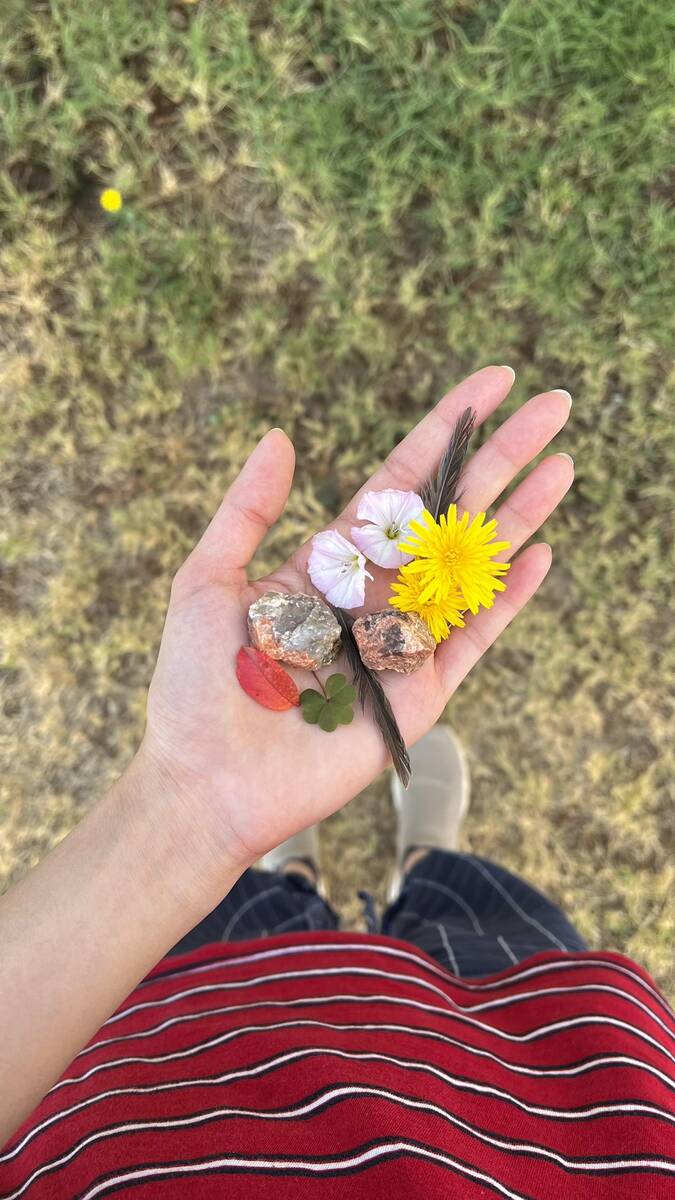
“As for the stickers, I’ve loved collecting them since I was a kid. I grew up and became an otaku fan,” she said, referencing her passion for Japanese anime and its visual culture.
This desire to preserve moments is not limited to organic materials. Others, like Htoon Saeed, turn to objects rich in historical context.
“My hobby of collecting coins came from my interest in history and vintage things,” she explained. “I noticed that coins are the ideal way to commemorate a particular era in history.”
Her collection includes both paper money and coins from countries around the world, laid out and organized with care. Each piece, regardless of value, holds significance as a snapshot of its time and place.
Abdulaziz Al-Yamani found his archive not in a museum or market — but in a cassette box filled with the voice of Talal Maddah.
The singer “shaped the sound of Saudi music and the soundtrack of my childhood and hometown,” said Al-Yamani.
“These tapes may be rare now, but to me, they’re pieces of history — and keeping them safe feels like a way to honor that legacy.”
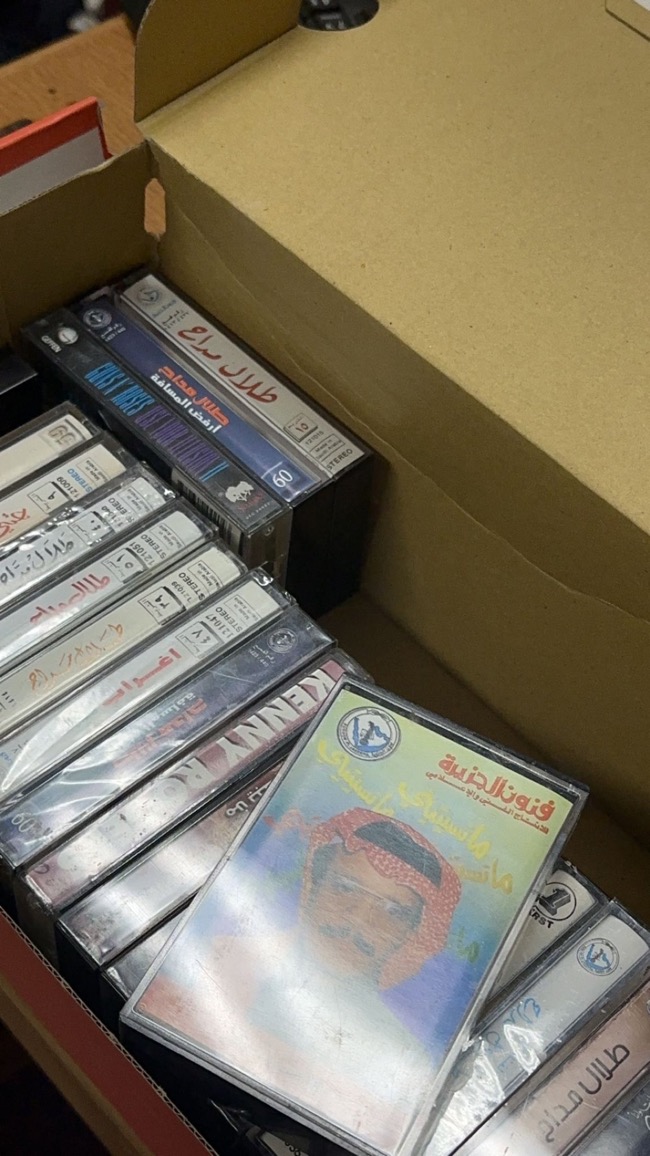
K-pop collector Jana Al-Harbi started her journey with a single card.
“What started as a simple joy in buying a rare photocard of an idol I love quickly grew into a three-year journey of collecting, connecting, and sharing moments with people who understand the same excitement,” she said.
“It’s slightly more than just a hobby — it’s something I truly loved, no matter the effort or cost. It brought me closer to a community and a passion that meant so much to me. And introduced me to a caring and loving side of myself I had never noticed before.”
In a world where digital interactions often feel fleeting, the tangible joy of collecting serves as a grounding ritual. Al-Harbi’s collection eventually led to an extraordinary moment.
“Collecting photocards also gives fans a big opportunity: a chance to win a one-to-one video call with their favorite idol. And that’s what happened to me — it gave me a sense of fulfillment and brought a beautiful closure to the journey.”
Collector Naif Al-Zahrani looks to vintage watches to mark not just the passing of time, but the stories tied to it.
“I collect money and coins, old and new from different countries, but what I love to collect mostly is vintage watches,” he said.
“For me, I believe watches represent the time you spend, and the memories you make. Watches (are) something that I collect because I see (them) as an art piece that you can have for life.
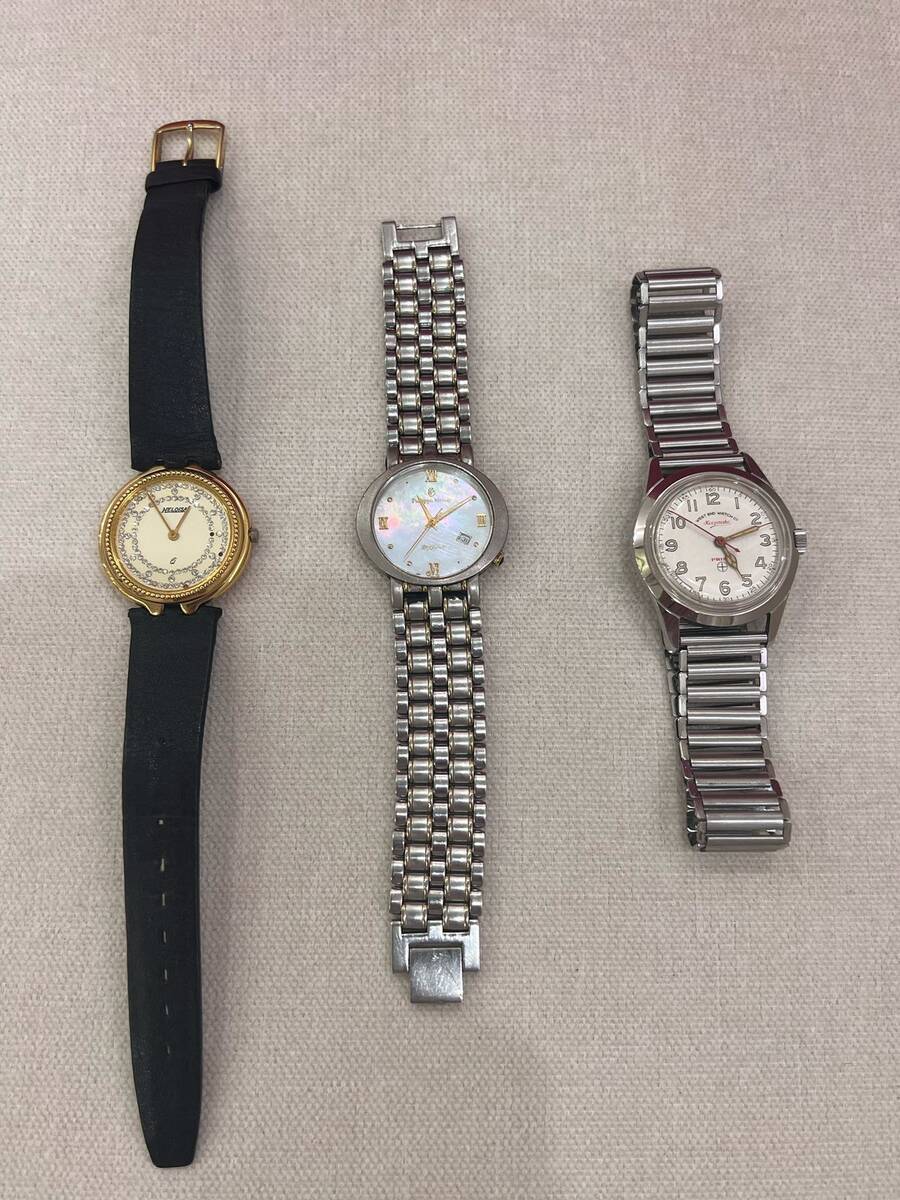
“It represents the personality of the wearer with the different designs, colors, and shape. As a person who is interested in history, everything collectible has its own story and value.”
His most cherished timepieces include a 1945 Heloisa with a black leather strap he describes as “the oldest watch that I adore.”
In addition, he has a 1970s Philippe Moraly with a mother-of-pearl dial which is his “favorite design,” and a 1980s West End Watch he calls “my everyday watch.”
While these collections vary in shape, theme and age, what unites them is the deep emotional and personal connection each collector has with their items.
Saudi Arabia, UK sign pact on marine biodiversity protection

- Sea animals, mangroves to be studied, monitored regularly
- Data generated will be used to determine vital interventions
RIYADH: Saudi Arabia’s National Center for Wildlife has signed a pact with the UK’s National Oceanography Center to collaborate on marine biodiversity projects, the Saudi Press Agency reported on Thursday.
Signed in Riyadh, the collaboration between the NCW and NOC includes monitoring the health of sharks, whales, dolphins, turtles, dugongs, mangroves, seagrass, and other species.
Studies will be undertaken to determine the effects of human activities on marine ecosystems, and the use of advanced technologies to track these activities and mitigate their potential harm.

The NCW’s CEO Mohammed Qurban said the agreement would help protect wildlife, conserve ecosystems, and restore ecological balance.
The NOC’s Deputy Director Alex Rogers welcomed the partnership. “Global collaboration is essential to achieve NOC’s vision of gaining a deeper knowledge of the ocean to help every living thing on our planet flourish.”
“The seas around Saudi Arabia host a wealth of biodiversity, from rich tropical coral reefs and seagrass beds to deep-sea ecosystems that have barely been explored.
“The collaboration between NCW and NOC will generate critical data on the distribution of species and their ecosystem functioning,” Rogers told Oceanographic magazine.
Britain’s NOC is a research and technology institution specializing in marine science, with facilities in Southampton and Liverpool. It is the UK’s largest organization dedicated to sea-level science and the research and development of coastal and deep-sea technologies.
Saudi Arabia’s NCW, established in 2019 in place of the National Wildlife Authority, is tasked with “preserving wildlife and biodiversity and protecting ecosystems.”
The NWC also “prioritizes research and innovation in wildlife conservation, drawing on national and international expertise.”


